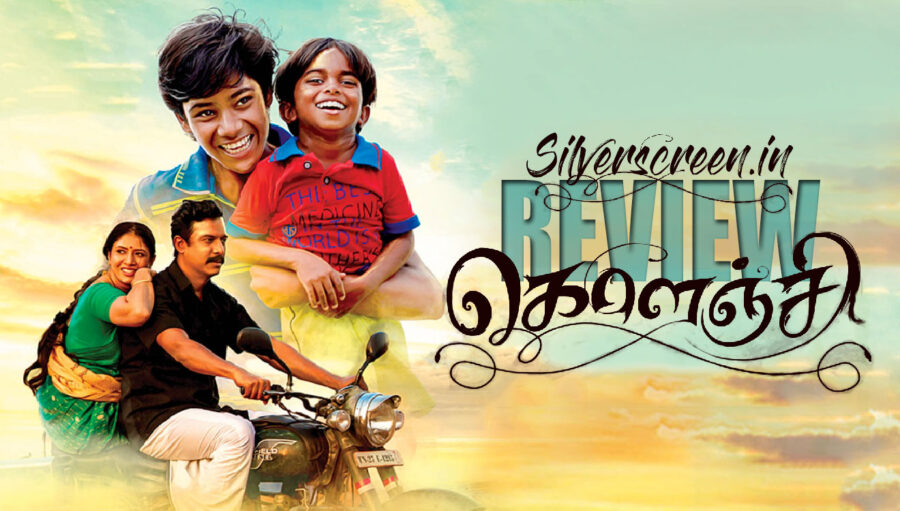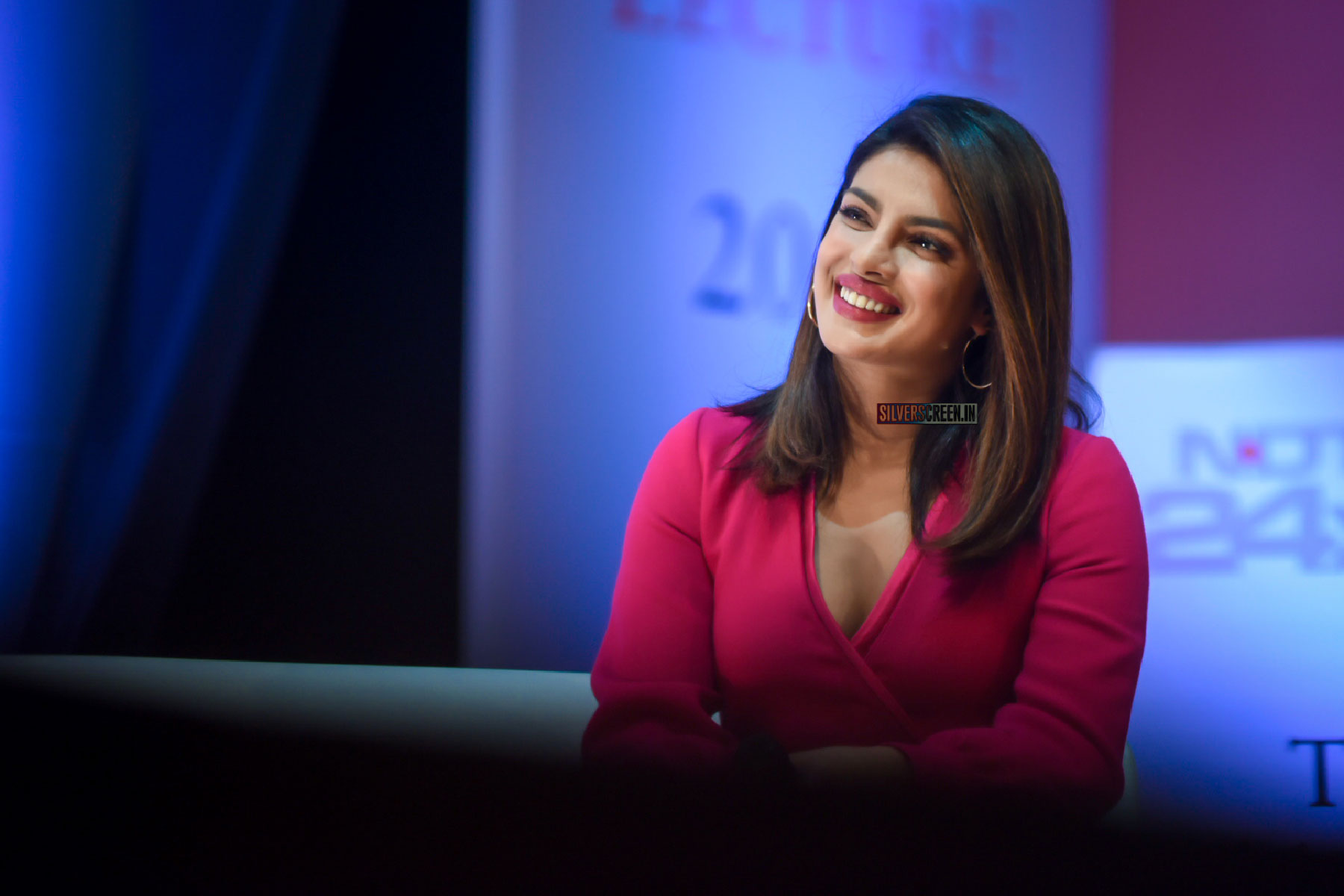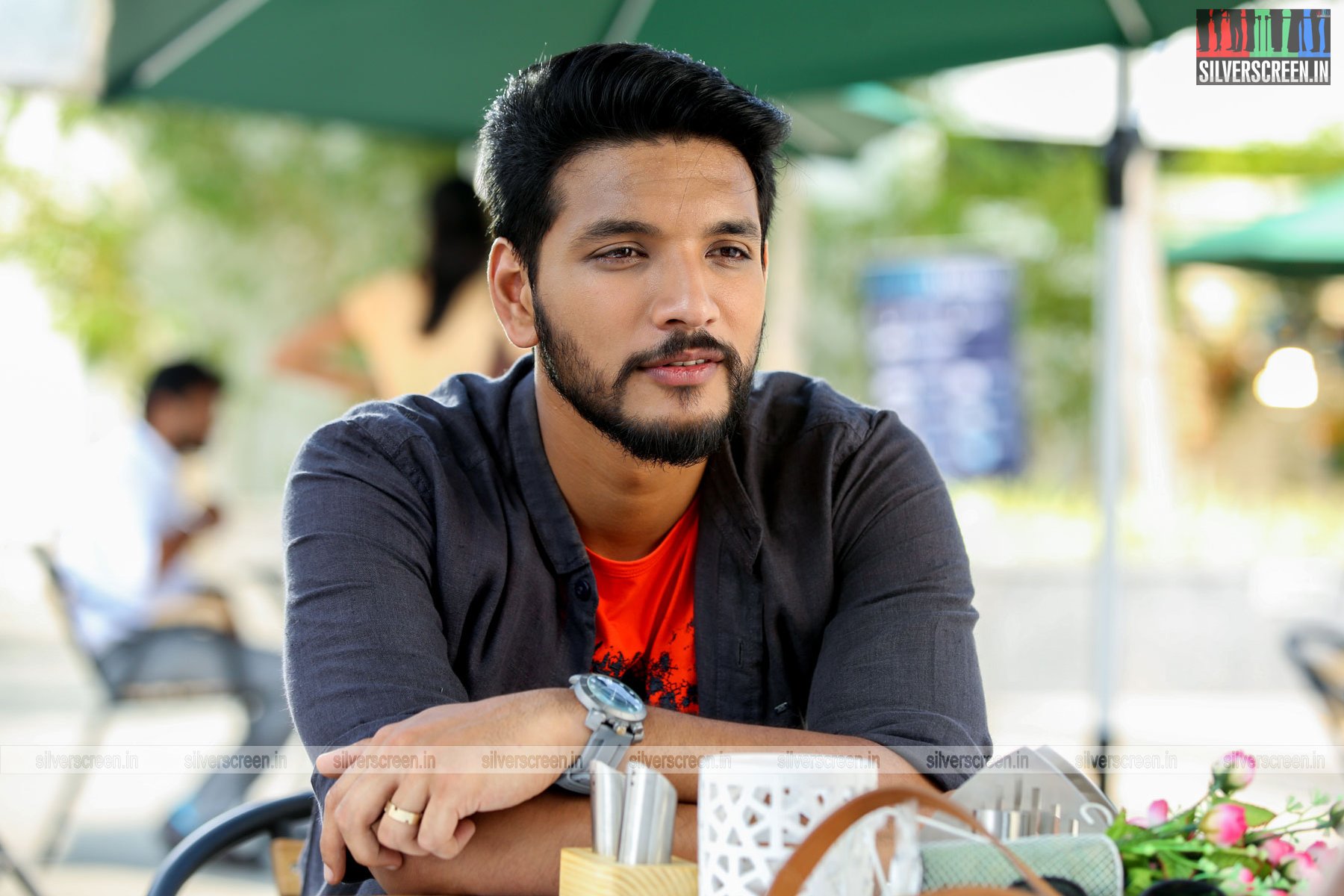Director: Dhanaram Saravanan
Cast: Kirubakaran, Sanghavi, Samuthirakani, Rajaji, Naina Sarwar
There needs to be an industry-wide moratorium on how many bearded men in love Tamil cinema can get away with showing on screen. And how many of these are “village” romances and thus can employ the entire trite trope – shaking heads, goofy smiles, gruff voices hiding hearts of gold.
In Kolanji, Rajaji – who plays Gemini – is one such lover and it gets a bit ridiculous and painful to watch this man – who in the normal course of a village film, would make an excellent villain’s brother getting beaten up by the hero – pretend to be in love with a clearly north Indian Naina Sarwar playing Tamil village belle Poongodi.
However, Kolanji has Kirubakaran playing Kolanji, and Nasath playing his sidekick Adithaangi, and these kids – precocious as they are – manage to carry the film to a preachy but satisfying end.
And oh, Samuthirakani.
*****
Kolanji is written by Dhanaram Saravanan and Naveen, and directed by Dhanaram Saravanan. It is produced by Naveen. It stars Kirubakaran, Sanghavi, Samuthirakani, Nasath, Rajaji, Naina Sarwar and others. Vijayan Muthuswamy is the cinematographer and Athiyappan Siva the editor. It features music by Natarajan Sankaran.
The film began in 2015 but delays in production and screen availability pushed it to today. The film marks the return of actress Sanghavi after a long sabbatical.
*****
There is an idealist and an idealogue of a father, Appasamy. A follower of Periyar, he is always in a black shirt and in an early scene, delivers a long lecture about caste, religion, Aryanism and Brahmanism, to a group of parents outraged that lower caste kids dare dream of studying in an English medium school.
The Yang to his Yin is Pushpam, his wife. She believes in god, and in the signs and symbols that society demands one display in order to be given respect. Her thaali for her is not just a personal sign of marriage but a flag, a social marker.
In this household, a picture of Periyar hangs right next to a picture of Murugan.
And they have two kids. Kolanji and Lenin. Kolanji would rather goof off, get into fights, set his cousin up with another cousin, get into fights, rebel against his father’s idealism and thus become his disciplining project, question authority and very occasionally stand up for his friends.
Lenin is quiet and studious but likes nothing better than to sabotage his elder brother.
There is the usual clutch of young boys who want to play and while time and be a bit grown up, including Adithaangi, who insists on speaking in English and playing cricket with the rest. However, one of the boys has an issue with it because Adithaangi comes from ‘that street’.
And so you think this story, this film could be interesting. Are we going to learn about casteism and discrimination from the perspective of a child? Will the Periyarist father have any effect on his rebel child or will the child go the way of the crowd?
But no. We need a romance.
Recommended
And so, one aforementioned bearded Gemini, likewise North Indian Tamil village belle Poongodi, and some three other women and one young girl, all of whom are objects of affection for the man and boy.
There is some confusion, family drama, some mixed bag emotions and speechifying, a half-hearted fight, and the film ends with Kolanji and Appasamy resolving their differences and bonding as father and son.
And one wants to know how filmmakers – writers especially – settle for a film that is less than its trailer? Settle for a film that seems to promise a great angle to a thorny issue and ends up being nothing about it at all?
*****
The Kolanji review is a Silverscreen original article. It was not paid for or commissioned by anyone associated with the film. Silverscreen.in and its writers do not have any commercial relationship with movies that are reviewed on the site.



